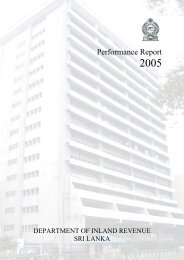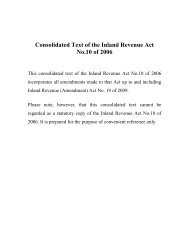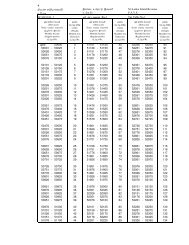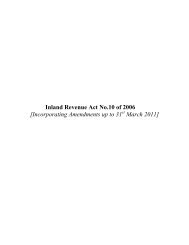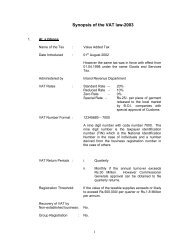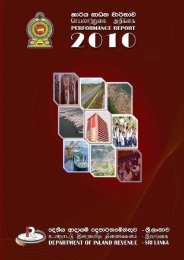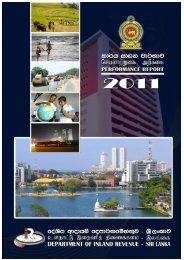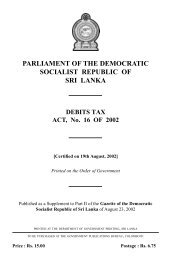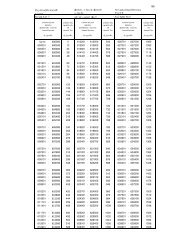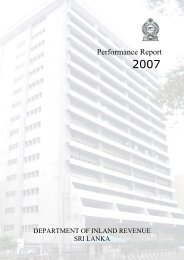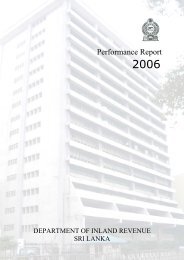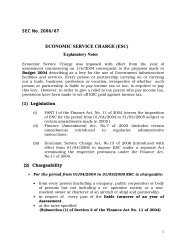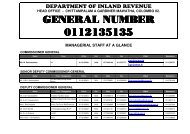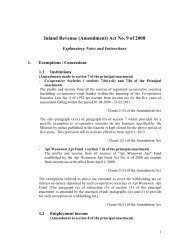VAT Guide to Value Added Tax - sri lanka inland revenue ...
VAT Guide to Value Added Tax - sri lanka inland revenue ...
VAT Guide to Value Added Tax - sri lanka inland revenue ...
You also want an ePaper? Increase the reach of your titles
YUMPU automatically turns print PDFs into web optimized ePapers that Google loves.
Chapter - 3<br />
The definitions of concepts<br />
3.1 In order <strong>to</strong> implement <strong>VAT</strong> it is necessary <strong>to</strong> understand the meanings of the terms and<br />
concepts employed in <strong>VAT</strong> Law. The terms and concepts as already indicated in paras<br />
2.1 and 2.2 are defined in Sections 4,.5 and 83 of the Act as given below.<br />
3.2 Supply of goods<br />
Means<br />
• passing of exclusive ownership of goods <strong>to</strong> another person,<br />
• By the owner of such goods or<br />
• By another person under the authority of any written law<br />
This includes among others<br />
- sale of goods by public auction<br />
- sale of goods in satisfaction of a debt<br />
- transfer of goods from a taxable activity <strong>to</strong> a non-taxable activity.<br />
- Transfer of goods under a hire- purchase agreement<br />
“Goods” means all kinds or movable or immovable property but does not includes<br />
money)<br />
i<br />
ii.<br />
Currency Notes & Coins :- According <strong>to</strong> Monetary Law currency Notes & Coins<br />
become legal tender only when they are recorded and issued for circulation.<br />
Thus import of notes and coins is not import of money but import of goods. Their<br />
value is not their face value but the cost.<br />
Supply of goods on Tender Agreements - is also covered by the above<br />
definition of “supply of goods”. A tenderer may<br />
(a) supply goods manufactured by him<br />
(b) supply goods which he purchases solely for the purpose of supply under<br />
tender agreements<br />
(c) supply goods in the course of a retail or wholesale business carried on<br />
by him.<br />
In all three situations he is supplying specific goods <strong>to</strong> a specific person at a<br />
specific time at a specified price and passing of exclusive ownership <strong>to</strong><br />
another person by the owner of the goods is present (in all situations).<br />
Thus it is liable <strong>to</strong> <strong>VAT</strong> in all situations and the supply on tender does not, by<br />
itself, amounts <strong>to</strong> a retail or wholesale business which is excluded from <strong>VAT</strong> as<br />
envisaged Section 3 of the Act (Vide Para 2.4.2). In situation (c ) above the<br />
tenderer is also liable <strong>to</strong> provincial turnover tax in addition <strong>to</strong> <strong>VAT</strong>. (Pleas see<br />
discussion in para 4.6)<br />
14



